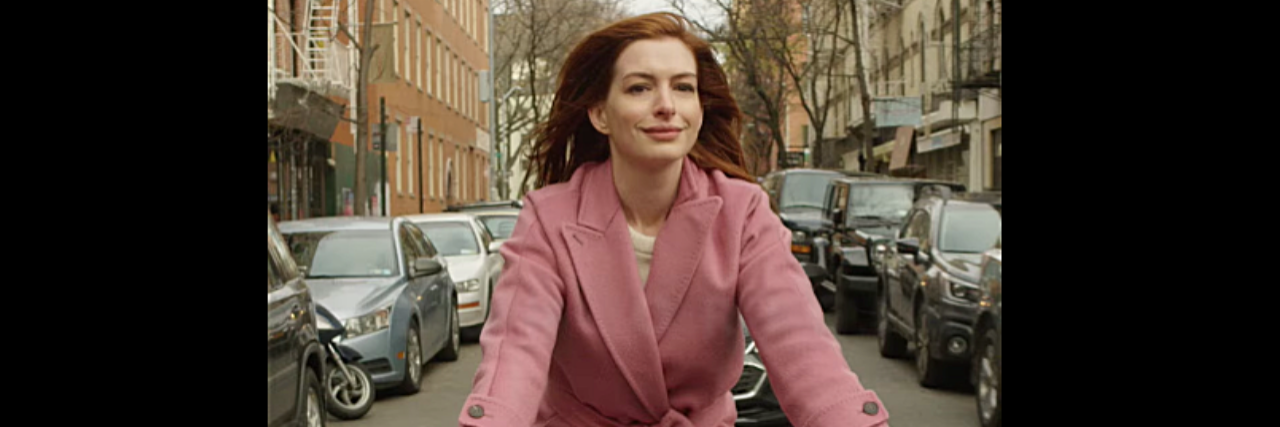The First Time I Saw Myself On Screen as a Woman With Bipolar Disorder
Editor's Note
If you’re looking for creative inspiration, check out the Daily Inspirations group on The Mighty.
Mental health as subject matter has clawed its way onto script pages and silver screens in recent years. But accurate portrayals of mental illness are still few and far between. The struggles of addiction have been seen in recent movies such as “Beautiful Boy” and TV series like “Euphoria.” In terms of visibility, anxiety and depression have been pushed into world consciousness through raw social media discussions and overall mental health awareness campaigns. And yet, as a 25-year-old woman with bipolar disorder, I didn’t see myself reflected in these conversations or on these screens. Until “Modern Love.”
• What is Bipolar disorder?
Episode 3 of “Modern Love,” a collection of New York-based atypical love stories, is called “Take Me As I Am, Whoever I Am” and immerses the viewer in the life of a bipolar woman named Lexi. Anne Hathaway’s portrayal of Lexi is both subtle and extravagant — the perfect example of the complexities of bipolar disorder. It opens with Lexi leading a dance number through the streets of New York on her way to the grocery store, aiming to encapsulate her mania. While at the grocery store, she meets a cute guy while picking out peaches, and in her euphoric state, she immediately gets coffee with him and plans a future dinner date. But by the time she returns home, her airy and elevated state of mania is slowly slipping away and being replaced by the heaviness of a depressive episode, leading her to miss out on her dinner date. The episode continues to show how expertly she hides her bipolar disorder from everyone around her, while simultaneously showing the detrimental effect it is having on her dating life, her career and everything in between. And for the first time ever, I saw myself — fully — on that screen.
Halfway through the episode, and my tears were already flowing. Because Lexi was me, and I was Lexi. It was breathtaking in the most literal sense. I was stunned into stillness, not daring to move too abruptly in fear of being taken out of this self-identifying moment. Having such a well-known actress like Anne Hathaway play a bipolar woman was oddly jarring. Because in such a familiar actress, I saw my disorder. And the juxtaposition of that was… cathartic. I could be brilliant, and beautiful, and intelligent, and creative — and bipolar.
As Anne Hathaway told Glamour, “I have people in my life who I love so deeply who have received various mental health diagnoses, and that’s not the whole story of who they are.” She also told Glamour, “I’ve seen people like Lexi, I have people in my life like Lexi, and I love people like Lexi.” And I believe that this helped her portray the character of Lexi with such subtle and empathetic complexity. I saw my own personal manic and depressive episodes reflected in Lexi. But I also saw the external view of a bipolar woman and the ways in which everyday people viewed her, with both delightful awe and concerned confusion. This was extremely foreign to me — and I am utterly grateful that this show allowed me to see these honest outside perspectives, because it showed me that there is more care and understanding in other people than I ever gave them credit for. This is emphasized in the last scenes of the episode.
The ending of the episode imprinted in me so heavily that it quite literally changed how I live my life as a bipolar woman. In one of the final scenes, Lexi finally opens up to a coworker about her condition, and ends up feeling a sense of relief and freedom. Her coworker asks her, “How does it feel telling me?” to which Lexi responds, “Like an elephant has taken one of its feet off my chest.”
I have never in my life heard a more accurate representation of the heaviness of such a hidden disorder. That description left me feeling more understood than ever before. And as Hathaway told Glamour, “We all walk around sometimes feeling like we have an elephant on our chest, but we’re not alone. And we’re not less than because of that. We’re not unlovable because of that.” So here’s to all of us walking around with the weight of an elephant — and to living a life that allows even just one foot to be lifted off our chest.
Screenshot from the “Modern Love” trailer

